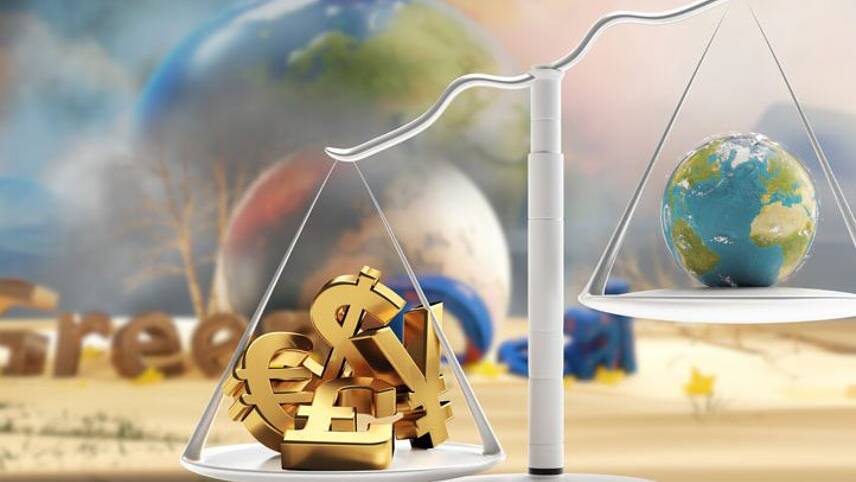Register for free and continue reading
Join our growing army of changemakers and get unlimited access to our premium content

‘Going green’ can sometimes mean purchasing sustainable raw materials, resulting in higher supply chain costs, and ultimately true sustainability encourages customers to buy less, which could affect profits.
But the reality is that world economies need to be sustainable to help tackle climate change. A draft report by the Intergovernmental Panel on Climate Change (IPCC) warned that unless global warming is brought under control there will be irreversible disasters.
Further, there is a human cost. It is the world’s most vulnerable people who are disproportionately affected by the effects of the climate crisis despite doing virtually nothing to cause it. One in ten people don’t have access to clean water, and extreme weather, such as severe floods and prolonged droughts, is impacting water quality and quantity. The World Economic Forum’s 2020 Business Global Risk Report (GRR) lists the water crisis among the top-five risks in terms of climate change impact. For business, this poses a dire threat to the health of its people, its resilience and its sustainability.
Last month G7 leaders committed to reaching net-zero carbon emissions by 2050 and halving emissions by 2030, in a bid to limit the rise in global temperatures. The private sector has a vital role to play in this. At a recent Confederation of Business Industry (CBI) conference, Alok Sharma said the targets were unachievable without the sector’s support.
The food and drink industry should be committed to this aim too. But while food production is responsible for more than a third (34%) of emissions, earlier this year, a survey by the Food and Drink Federation (FDF) found that one-third of food and drink companies in the UK had failed to set plans for tackling climate change.
The foodservice sector has taken a severe financial hit as a result of lockdown restrictions, but with one of the highest carbon footprints, the industry needs to find ways to reduce its environmental impact. Not only will it be good for the planet, but consumers expect businesses to.
Research has shown that the pandemic may have led to an increase in ethical shopping. An IBM survey reported that 54% of consumers across nine countries – including the UK – would pay a premium for brands that are environmentally responsible and/or sustainable. Plus, according to the Sustainable Restaurants Association (SRA), the number of consumers concerned about the environment has increased from 47% pre-lockdown to 65% with, nearly two-thirds of these concerned customers willing to try a restaurant’s most sustainable dish, over their usual choice.
The food and drink sector has taken some steps to address this, with companies reducing on-site carbon emissions by 55%, five years before a 2025 target, but there’s more to do.
From our experience, we know climate action can successfully be integrated into a business plan.
Since the launch of our drinks business, we’ve shown it’s possible to be profitable, while putting the environment and people first. Our end goal is for all our profits to go into saving emissions from entering the atmosphere and implementing a circular economy, as well as WaterAid’s work in helping transform lives around the world with clean water and decent sanitation.
Our commitment to our purpose means we’ve always championed the reduction of single-use materials, so much so that we actively dissuade people from purchasing water bottles, including ours, unless necessary.
During the pandemic, while we were not immune to financial difficulties, we took the opportunity to assess how we could scale-up our sustainability practices. This led to the rebrand of our filtration business; we believe businesses can look to filtration to not only reduce their own single-use and contribution to landfill waste, but also generate profit.
We also took the time to explore the wider drinks market. On discovering there were no tonic and mixer produced by brands that centered the environment, we set out to create the most sustainable mixer, ensuring that the bottles contained as much recycled content as possible, ingredients were from sustainable sources, and of course that the mixers were great-tasting.
From our experience, we believe there are three key steps businesses can take to increase their sustainable practices while remaining financially viable:
1) Take full accountability of all the emissions created by your products and business, from the generation of raw materials to end of life
2) Focus on reducing those emissions by continuously challenging the process and considering this in the introduction of new ideas and products
3) Ensure you measure, report and offset emissions to the Independent Standard of Carbon Neutrality, PAS 2060. We have done this since 2010
We also believe that while generating profit is vital, it shouldn’t be the primary motive for pursuing environmentally-friendly business practices – protecting the planet’s resources and compassion for those most affected by the climate crisis, should be.
We’re proud to have recently celebrated our ten-year partnership anniversary with WaterAid, giving over £5m to the charity in this period, as we recognise that clean water is not only fundamental to sustainable development, but is also a critical adaptation strategy for communities and businesses to cope with the effects of climate change.
In the lead up to COP26, the food and drink sector must continue the work to ramp up their sustainability practices and develop ambitious climate change plans, since as well as the environment consequences, the climate crisis is devasting people’s lives.
Natalie Campbell and Charlotte Harrington, Belu, co-chief executives



Please login or Register to leave a comment.